This article was co-authored by Pradeep Adatrow, DDS, MS and by wikiHow staff writer, Christopher M. Osborne, PhD. Dr. Pradeep Adatrow is the only board certified Dentist, Periodontist, and Prosthodontist in the southern United States. With over 15 years of experience, Dr. Adatrow specializes in dental implants, TMJ treatments, periodontal plastic surgery, surgical and non-surgical periodontics, bone regeneration, laser treatments, and soft tissue and gum graft procedures. He received a BS in Epidemiology and Biostatistics from the University of Alabama and earned his Doctor of Dental Surgery (DDS) degree from the University of Tennessee College of Dentistry. Dr. Adatrow then completed a three-year postgraduate program in periodontics and implantology at Indiana University and went on to complete another three-year postdoctoral program in advanced prosthodontics from the University of Tennessee. He also serves as a full-time professor and the Director of Surgical Prosthodontics at the University of Tennessee. Dr. Adatrow received the Dean's Junior Faculty Award and the John Diggs Faculty Award, and he was inducted into the Deans Odontological Society. He is board certified by the American Board of Periodontology and is a Fellow of the prestigious International College of Dentistry – a feat that only 10,000 others worldwide can claim.
This article has been viewed 81,437 times.
If you’re dealing with a stiff, tight, or painful jaw, you know that it can be particularly bothersome in the evening. To relax your jaw muscles before bedtime, do a series of quick and easy stretches, then follow up with some simple strengthening exercises in the morning. Try massaging the masseter muscles that power your jaw as well, and don’t forget about managing the stress that may be causing your jaw discomfort in the first place!
Steps
Stretching and Strengthening Your Jaw
-
1Repeat a series of 3 simple jaw stretches every evening. Do each of the following for 5-10 seconds as you get ready for bed:[1]
- Touch your tongue to the roof of your mouth, then open your mouth as wide as you can without pain.
- Keep your tongue against the roof of your mouth, then slide your lower jaw as far out as you can. After that, slide it in as far as you can.
- Open your mouth as wide as you comfortably can, with your tongue in a neutral position. Then, close your mouth and reopen it slightly, slide your jaw to the left for 5-10 seconds, then slide it to the right for 5-10 seconds.
-
2Add a jaw stretch using a pencil to your nightly routine. Clamp a pencil, paintbrush, or similar object between your front teeth, securely but not forcefully. Slowly glide your lower jaw forward as far as you comfortably can, without letting the object fall out of your mouth. Hold the position for 20 seconds.[2]
- Try doing this 2-3 times nightly before bedtime.
- Over time, you may be able to do this exercise with a thicker object, like a child’s easy-grip pencil.
Advertisement -
3Press your thumb to your chin as a wake-up exercise. Hold your thumb firmly against the underside of your chin. Press your thumb up with moderate force and open your mouth until it is comfortably wide, against the resistance of your thumb. Hold the position for 5-10 seconds.[3]
- The resistance provided by your thumb makes this a jaw strengthening exercise.
- Try doing this exercise 2-3 times each morning.
-
4Follow up with a second jaw exercise using your index finger each morning. Touch your index finger between your lower lip and your chin, then open your mouth comfortably wide. Press your finger against the front of your jaw with moderate force, and slowly close your mouth against this resistance.[4]
- This strengthening exercise targets different areas of your jaw muscles than the thumb exercise.
- Repeat this exercise 2-3 times each morning.
Massaging Your Masseter Muscles
-
1Locate the notch in front of your ear and under your cheekbone. Press your fingertip against the underside of your cheekbone, about 1 in (2.5 cm) in front of your ear. After some probing, you should find a small indentation or notch. This is a pressure point that you can use to massage your masseter muscle.[5]
- Located on both sides of your face, your masseter muscles power your jaw, especially when you bite or chew.
- Based on their size, your masseter muscles are the strongest muscles in your body.
-
2Press your finger, thumb, or knuckle into the notch. Push inward and slightly upward with your fingertip until you feel a “sweet ache”—in other words, the soothing but slightly painful feeling you probably associate with a massage. If you find it difficult to press firmly enough with your fingertip, try your thumb or knuckle.[6]
- Don’t aim for outright pain here—push until you feel only slight discomfort.
-
3Apply constant pressure or kneading circles to the notch. Once you have the pressure right, you can simply hold your finger, thumb, or knuckle in place. Alternatively, try making small circles with your finger, thumb, or knuckle while maintaining pressure on the notch.[7]
- Massage the area for 30 seconds to 1 minute, then switch to your other cheek.
- Do this massage every night before bedtime. You can also do it when you wake up in the morning, and any other time that your jaw feels tight.
-
4Increase the pressure you apply over time. Since your masseters are such dense, strong muscles, it can take a lot of pressure to soothe and loosen them. Over time, you’ll probably find that you need to apply greater pressure to get the same results. That’s fine—your masseters can handle it![8]
- Switch to using your knuckle if you can’t apply adequate pressure with your finger or thumb.
Addressing Clenching, Grinding, or Pain
-
1Relieve stress with light exercise, yoga, or other methods. There’s a good chance that you respond to stress by clenching your jaw or grinding your teeth, even if you don’t realize it.[9] These are very common stress responses that can cause jaw tightness and pain, as well as dental problems. By better managing the stress in your life, you’ll reduce these behaviors.[10]
- Find the stress-busters that work best for you. You might use meditation, deep breathing exercises, progressive muscle relaxation, visualization techniques, walking in nature, talking to a good friend, or listening to soothing music, among many other options.
- Make a point of using your stress-busters within 1-2 hours of bedtime, as well as throughout the day.
-
2Train yourself to keep your teeth separated during the day. If easing your stress isn’t enough to reduce your jaw clenching or teeth grinding, try to catch yourself in the act throughout the day. When you notice it, focus on holding your mouth in the proper position—teeth slightly apart, tip of the tongue touching the roof of the mouth just behind the front teeth.[11]
- Ideally, your teeth should only touch when you’re eating.
- You can also try holding your mouth open wide (but not painfully wide) for 1-2 minutes at a time whenever you notice yourself clenching or grinding. This might not be a good idea during a budget meeting, though!
-
3Cut back on chewing tough foods and clenching non-food items.[12] While the masseter muscles that power your jaw are some of the strongest muscles in your body, you can still overwork them by chewing. During the day, and especially as bedtime nears, avoid hard-to-manage foods like a tough steak, chewy candy, or a whole carrot.[13]
- Skip chewing gum as well, especially in the evening if you get nighttime jaw pain.
- Also avoid clenching your teeth around non-foods like pencils, straws, or toothpicks.
-
4Take a warm bath to ease stress and soothe your muscles. Taking a nightly soak in a warm bath offers many benefits, including jaw relaxation. For instance:[14]
- The warm water and moist air help to loosen and relax your jaw (and other) muscles.
- Warm baths are calming and will help reduce your stress levels.
- If you make the bath part of your nightly routine, it will signal to your body that it is time to go to sleep.
-
5Apply moist heat to your jaw as a bath alternative. If you can’t or don’t want to soak in a tub, you can still soothe your jaw with warm water. Soak a soft cloth in warm water, wring it out, and hold it to your jaw, just below your cheekbone, until the cloth is no longer warm.[15]
- Switch sides when you’re done, and repeat as needed. You can apply moist heat to your jaw throughout the day and evening.
-
6Talk to your doctor about medical treatments like mouth guards and medications. If your jaw feels consistently tight, stiff, uncomfortable, or downright painful, meet with your doctor to discuss the issue. Depending on your circumstances, they might recommend treatments like:[16]
- Having a custom-fitted mouth guard made to hold your jaw in a relaxed position.
- Taking a muscle relaxant medication in the evening.
- Seeing a mental health professional to manage your stress.
- Undergoing further testing to see if you have a jaw disorder.
Expert Q&A
Did you know you can get expert answers for this article?
Unlock expert answers by supporting wikiHow
-
QuestionHow should I sleep with TMJ pain?
 Pradeep Adatrow, DDS, MSDr. Pradeep Adatrow is the only board certified Dentist, Periodontist, and Prosthodontist in the southern United States. With over 15 years of experience, Dr. Adatrow specializes in dental implants, TMJ treatments, periodontal plastic surgery, surgical and non-surgical periodontics, bone regeneration, laser treatments, and soft tissue and gum graft procedures. He received a BS in Epidemiology and Biostatistics from the University of Alabama and earned his Doctor of Dental Surgery (DDS) degree from the University of Tennessee College of Dentistry. Dr. Adatrow then completed a three-year postgraduate program in periodontics and implantology at Indiana University and went on to complete another three-year postdoctoral program in advanced prosthodontics from the University of Tennessee. He also serves as a full-time professor and the Director of Surgical Prosthodontics at the University of Tennessee. Dr. Adatrow received the Dean's Junior Faculty Award and the John Diggs Faculty Award, and he was inducted into the Deans Odontological Society. He is board certified by the American Board of Periodontology and is a Fellow of the prestigious International College of Dentistry – a feat that only 10,000 others worldwide can claim.
Pradeep Adatrow, DDS, MSDr. Pradeep Adatrow is the only board certified Dentist, Periodontist, and Prosthodontist in the southern United States. With over 15 years of experience, Dr. Adatrow specializes in dental implants, TMJ treatments, periodontal plastic surgery, surgical and non-surgical periodontics, bone regeneration, laser treatments, and soft tissue and gum graft procedures. He received a BS in Epidemiology and Biostatistics from the University of Alabama and earned his Doctor of Dental Surgery (DDS) degree from the University of Tennessee College of Dentistry. Dr. Adatrow then completed a three-year postgraduate program in periodontics and implantology at Indiana University and went on to complete another three-year postdoctoral program in advanced prosthodontics from the University of Tennessee. He also serves as a full-time professor and the Director of Surgical Prosthodontics at the University of Tennessee. Dr. Adatrow received the Dean's Junior Faculty Award and the John Diggs Faculty Award, and he was inducted into the Deans Odontological Society. He is board certified by the American Board of Periodontology and is a Fellow of the prestigious International College of Dentistry – a feat that only 10,000 others worldwide can claim.
Board Certified Dentist & Oral Surgeon
References
- ↑ https://www.medicalnewstoday.com/articles/317871.php
- ↑ https://www.medicalnewstoday.com/articles/317871.php
- ↑ https://www.medicalnewstoday.com/articles/317871.php
- ↑ https://www.medicalnewstoday.com/articles/317871.php
- ↑ https://www.painscience.com/articles/spot-07-masseter.php
- ↑ https://www.painscience.com/articles/spot-07-masseter.php
- ↑ https://www.painscience.com/articles/spot-07-masseter.php
- ↑ https://www.painscience.com/articles/spot-07-masseter.php
- ↑ Pradeep Adatrow, DDS, MS. Board Certified Dentist & Oral Surgeon. Expert Interview. 30 September 2020.
- ↑ https://www.sleep.org/articles/prevent-grinding-teeth/
- ↑ https://www.sleep.org/articles/prevent-grinding-teeth/
- ↑ Pradeep Adatrow, DDS, MS. Board Certified Dentist & Oral Surgeon. Expert Interview. 30 September 2020.
- ↑ https://www.sleep.org/articles/prevent-grinding-teeth/
- ↑ https://www.sleep.org/articles/prevent-grinding-teeth/
- ↑ https://www.practo.com/healthfeed/are-you-involuntarily-clenching-your-teeth-23523/post
- ↑ https://www.medicalnewstoday.com/articles/317871.php
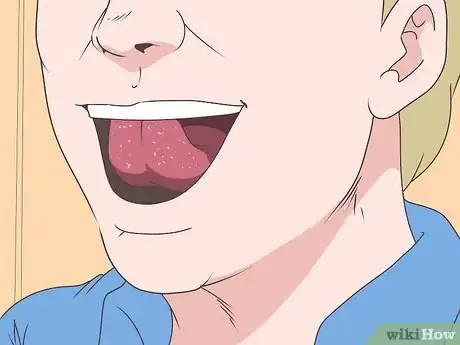
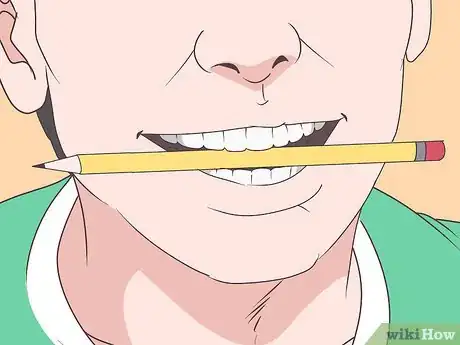


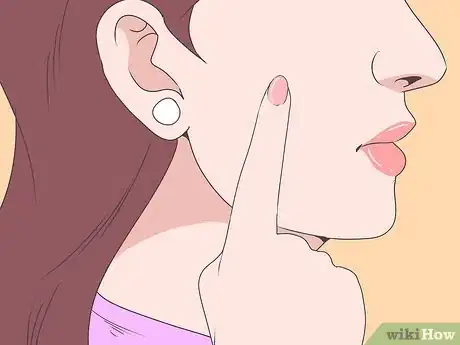

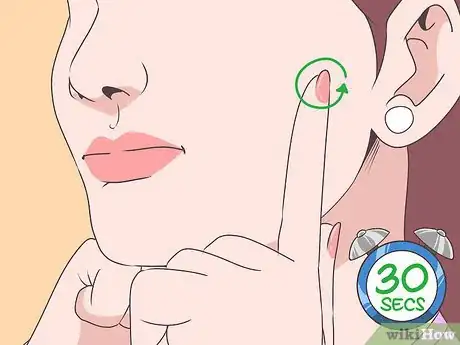
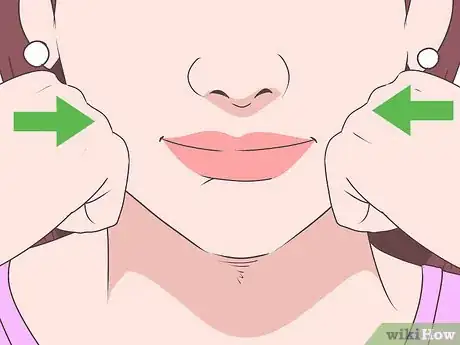








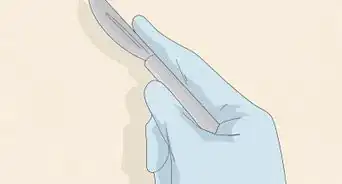




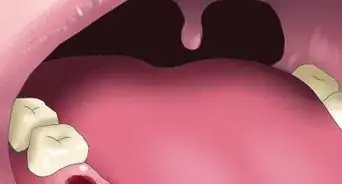


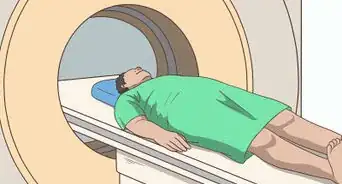
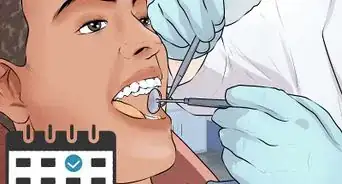















































Medical Disclaimer
The content of this article is not intended to be a substitute for professional medical advice, examination, diagnosis, or treatment. You should always contact your doctor or other qualified healthcare professional before starting, changing, or stopping any kind of health treatment.
Read More...